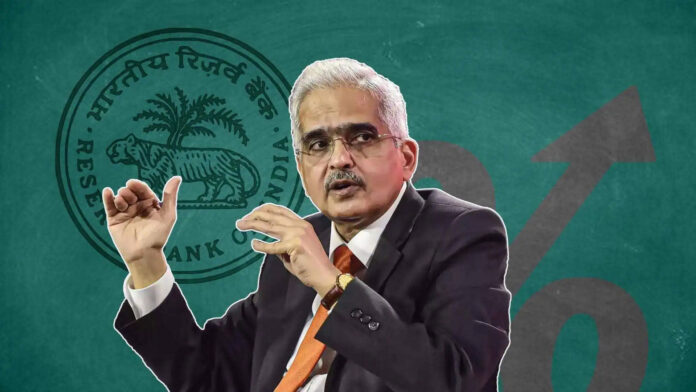
The Reserve Bank of India (RBI) decided on Friday to keep the repo rate unchanged at 6.5%, marking the 11th consecutive pause in its monetary policy stance. The decision was made following a 4-2 majority vote among the RBI’s Monetary Policy Committee. RBI Governor Shaktikanta Das reaffirmed that the policy stance remains neutral, allowing flexibility to respond to evolving economic conditions.
The announcement comes amidst growing concerns about a slowdown in India’s economic growth, particularly after the second quarter of FY25 saw the country’s GDP growth dip to 5.4%, the slowest pace in seven quarters. In response to this, the RBI has reduced the Cash Reserve Ratio (CRR) for all banks by 50 basis points to 4%, a move aimed at injecting more liquidity into the banking system.
The central bank also revised its GDP growth forecast for FY25 down to 6.8%, from an earlier projection of 7.2%. For the third and fourth quarters of the current fiscal year, the RBI has pegged growth estimates at 6.8% and 7.2%, respectively. In terms of inflation, the Governor projected core inflation at 4.8% for FY25, with quarterly estimates at 5.7% for Q3, 4.5% for Q4, and for FY26, at 4.6% for Q1 and 4% for Q2.
In addition to these key announcements, Governor Das outlined several initiatives aimed at improving financial systems and promoting economic growth.
Here are the top 10 key takeaways from his speech:
- Reduction in Cash Reserve Ratio (CRR) – A 50 basis point reduction to 4% to improve liquidity in the banking system.
- Higher Interest Rates on FCNR(B) Deposits – A move to attract more foreign exchange into India.
- Expansion of FX-Retail Platform via Bharat Connect – A new platform aimed at expanding access to foreign exchange retail services.
- Introduction of the Secured Overnight Rupee Rate (SORR) – A new reference rate for overnight borrowing in the domestic market.
- Launch of ‘Connect 2 Regulate’ Initiative – An initiative to enhance collaboration between the RBI and regulated entities.
- Podcast Facility – A new communication tool to improve transparency and provide insights on monetary policy decisions.
- Increased Collateral-Free Agriculture Loan Limit – An effort to boost credit access to farmers, supporting agricultural growth.
- Pre-Sanctioned Credit Lines on UPI for Small Finance Banks (SFBs) – A digital lending initiative to enhance financial inclusion.
- FREE-AI: Framework for Responsible AI Adoption in Finance – Guidelines to encourage ethical and responsible AI use in financial services.
- MuleHunter.AI: AI-Based Detection of Mule Accounts – A new initiative to combat financial fraud by identifying mule accounts used for illegal activities.
The RBI also encouraged banks to collaborate with the RBI in further developing the MuleHunter.AITM initiative, which aims to detect and prevent financial fraud linked to mule bank accounts. This strategic move is part of the broader effort to use AI in strengthening the integrity of the financial system and combating emerging threats.
In summary, while the RBI’s decision to maintain the repo rate comes amidst slowing growth, the comprehensive measures announced are designed to stabilize the economy, improve liquidity, and enhance financial security, ensuring sustainable growth and development across sectors.





